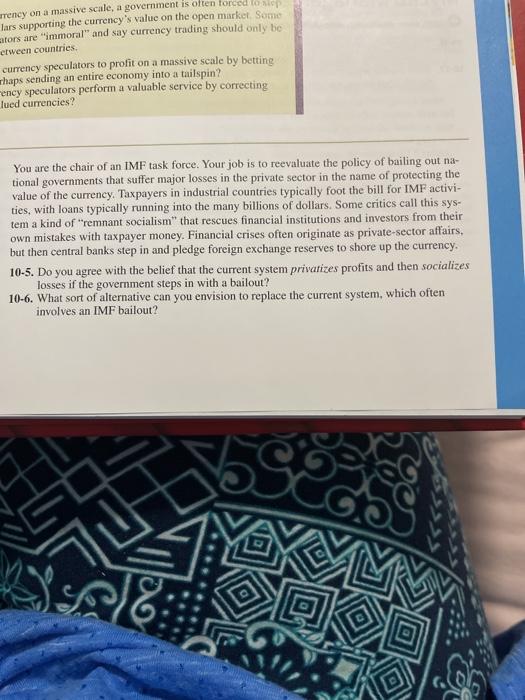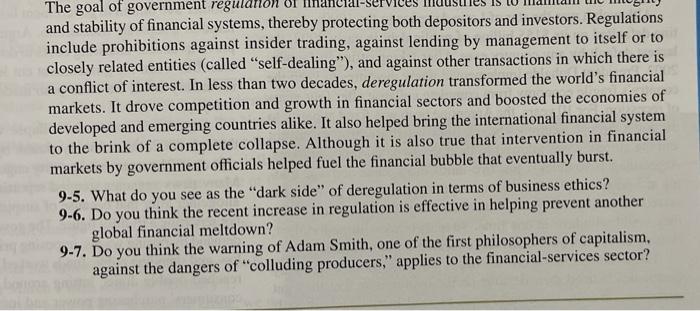
The goal of government regulation and stability of financial systems, thereby protecting both depositors and investors. Regulations include prohibitions against insider trading, against lending by management to itself or to closely related entities (called "self-dealing"), and against other transactions in which there is a conflict of interest. In less than two decades, deregulation transformed the world's financial markets. It drove competition and growth in financial sectors and boosted the economies of developed and emerging countries alike. It also helped bring the international financial system to the brink of a complete collapse. Although it is also true that intervention in financial markets by government officials helped fuel the financial bubble that eventually burst. 9-5. What do you see as the "dark side" of deregulation in terms of business ethics? 9-6. Do you think the recent increase in regulation is effective in helping prevent another global financial meltdown? 9-7. Do you think the warning of Adam Smith, one of the first philosophers of capitalism, against the dangers of "colluding producers," applies to the financial-services sector? arency on a massive scale, a government is often forced to stop lars supporting the currency's value on the open market. Some autors are "immoral" and say currency trading should only be etween countries currency speculators to profit on a massive scale by betting chaps sending an entire economy into a tailspin? ency speculators perform a valuable service by correcting lued currencies? You are the chair of an IMF task force. Your job is to reevaluate the policy of bailing out na- tional governments that suffer major losses in the private sector in the name of protecting the value of the currency. Taxpayers in industrial countries typically foot the bill for IMF activi- ties, with loans typically running into the many billions of dollars. Some critics call this sys- tem a kind of "remnant socialism" that rescues financial institutions and investors from their own mistakes with taxpayer money. Financial crises often originate as private sector affairs, but then central banks step in and pledge foreign exchange reserves to shore up the currency. 10-5. Do you agree with the belief that the current system privatizes profits and then socializes losses if the government steps in with a bailout? 10-6. What sort of alternative can you envision to replace the current system, which often involves an IMF bailout? 5S








